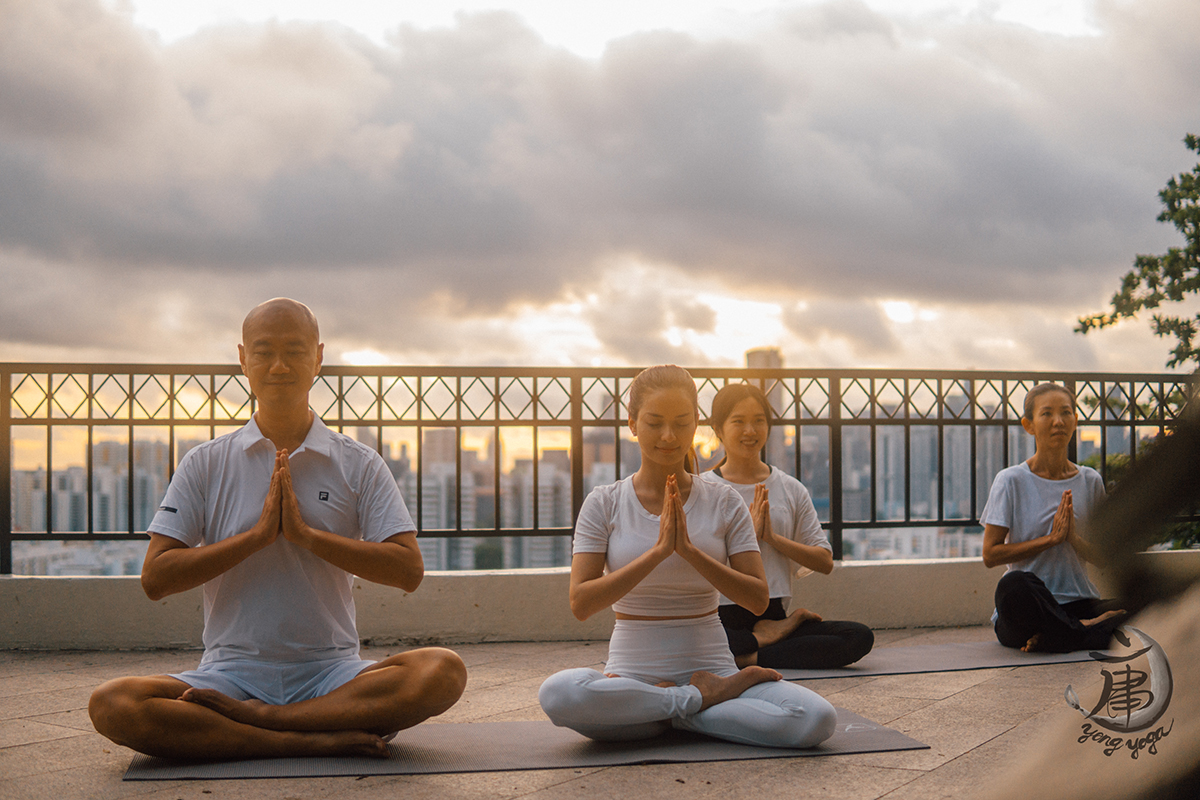

TAKEAWAYS
“It is okay to not be okay” is now a phrase that is commonly associated with mental wellness; more specifically, it pertains to seeking help and talking to others about what’s affecting our mental wellbeing.
What’s the difference between mental wellness and mental health?
According to the Singapore Association for Mental Health, being mentally well means “your mind is in order and functioning in your best interest. You are able to think, feel and act in ways that create a positive impact on your physical and social wellbeing. Mentally well people are positive, self-assured and happy, in control of their thoughts, emotions and behaviour, enabling them to handle challenges, build strong relationships and enjoy life”.
A mental illness (mental health issue) is a disturbance of the mind that impairs the way we think, feel and behave. It affects our daily activities, and also impacts the lives of family members and friends.
Mood and anxiety disorders are the most common mental illnesses. About one in seven Singaporeans has experienced a mood or anxiety disorder at some point in his/her life.
Due to the increased stressors of (post-)pandemic living, and an increasingly accelerated digital pace of life, mental wellness is now receiving mainstream recognition globally. Locally, the Singapore government, companies and industry bodies like the Institute of Singapore Chartered Accountants (ISCA) are all devoting significant resources to this important area.
Two important resources which I turn to regularly are Healthhub and the ISCA mental wellness page.
To me, examinations are stressful situations. In a flashback to my final examination in university before graduating from accountancy, I had a temporary nervous breakdown brought on by severe and cumulative stress. When the examination started, I suffered from a panic attack as my mind kept revolving around the “what if” scenario of me failing the exam and not being able to graduate. Very soon, I was sweating profusely, and feeling dizzy and physically unwell.
Somehow, I decided that I had a choice – continue to ruminate or try to think more positive thoughts. I managed to slow down my breathing (I hadn’t heard about mindfulness or yoga breathing then), asked for permission to visit the restroom for a quick break, and returned to the exam hall. Having “overruled” the random doubts in my mind, I told myself to try my best and not worry about the outcome. Eventually, I did pass and graduate with my cohort.
Little did I know then that mental wellness is a spectrum of conditions. It ranges from good mental wellbeing that is able to deal with stress effectively to an “at-risk” stage due to too much ongoing and chronic stress to finally, severe, debilitating mental health issues which require clinical treatment.
Our minds have a habit of replaying the worst-case scenarios we fear. While this may be due to our neurological and physiological makeup, the thoughts, emotions and physical responses they produce in the body can have serious health impacts if left unchecked. Thus, we should try to understand our minds more. Instead of seeking to control and remove stress or negative thoughts immediately, we can progressively train the mind to respond appropriately.
Like any training, moulding our minds is a process and a journey. My personal journey for mental wellness brings me back a few thousand years to ancient India and China.
Being a yoga coach graduating from an Indian lineage1 and an avid student of Chinese history, I learnt that both these civilisations have a wealth of knowledge we can draw upon to improve our mental wellness.
Yoga: Uniting body, mind and spirit
Modern yoga tends to focus more on the physical aspects of flexibility and fitness by emphasising the practice of poses (that is, asanas). The ancient yogis viewed yoga as a holistic approach to wellbeing and human existence.
In the concept of pancha kosha, human existence is defined as having five interconnected layers through which we filter all experiences. On the outside is our physical, flesh body. The pranamaya kosha (breath/life energy layer) and manomaya kosha (mental layer) are the second and third layers beneath the external body. In the innermost layer is our true self – the most subtle form of existence.
While modern society is just recognising the importance of mental wellbeing, traditional yoga has viewed mental health as an intricate part of human wellness. An unhurried, steady, and gentle breathing pattern helps to develop a foundation for mental focus and wellbeing. At my studio, Yong Yoga Asia, we reinforce the importance of breathing and mental alertness during all our yoga sessions.
Chinese definition of wellbeing
In Chinese philosophy, to cultivate overall wellbeing (养生之道), there are generally three accepted components that we need to develop and nourish – 养身 (physical health), 养息 (breathing), and 养心 (heart-mind). The first portion is to improve physical health through proper lifestyle and diet habits, exercise and techniques like qigong, traditional Chinese medicine, and massage. The second portion relates to developing better breathing techniques, ideally, a slow, subtle inhale and exhale breath barely audible to oneself. This is not unlike what yogic breathing teaches.
Finally, 养心 refers to looking after the heart-mind. Chinese thinking is systematic and functional in nature, and does not break down the physical organs into their component parts. Heart-mind refers to the connection between our mind and heart, which together define who we are.
Through practices like qigong, developing virtues and upholding morality, the heart-mind stays balanced and well. Again, like yoga, the ancient Chinese view mental wellbeing as inseparable from overall wellness. Humans will be well when harmonious balance between nature and body is achieved, that is, when we are in a state of homeostasis.
Helming two startups – Rexmed Telemedicine, and Yong Yoga Asia – I am constantly facing the pressure of modern living, like everyone else. How do I keep my balance and prioritise mental wellness?
Personally, I adopt the trio practice of Flexibility, Mindfulness And Resilience espoused here:
Flexibility
In the context of mental wellness, flexibility is the ability to adjust our thinking and behaviours to new situations. A lot of mental stress develops because we are pre-conditioned to react to a situation in a certain way. We feel distress when things don’t happen as we expect.
In Laozi’s 道德经 (Way of Dao), the ancient sage advocated the need to stay mentally flexible. He used the examples of a leaf which sways and bends in a strong wind, and yielding when necessary to avoid injury. He also believed that rigidity is a characteristic associated with danger and death.
At work, maintaining mental flexibility means I stay curious instead of expecting circumstances to happen in some pre-set way. Curiosity and adaptive thinking are how I welcome the unknown. It also means ceding control most of the time; after all, trying to control what’s beyond control is a source of stress we can eliminate.
Mindfulness
Popularised by Jon Kabat Zinn, mindfulness is now practised extensively by millions globally. In one of the sessions in ISCA’s Web-Bitez Learning Series, I shared the various techniques which can be used to mitigate stress. Mindfulness practice can be both formal (for example, setting aside time, attending structured workshops and events, etc), or informal (for example, deciding to meditate while queuing for food).
I have found informal mindfulness to be especially useful in the middle of a busy day. Any physically safe setting can be leveraged to perform an inner mental scan and connect to myself inwardly. Mindfulness helps me to stay grounded in the present and develop better sensitivity to the needs of others around me.
Resilience
A resilient mindset holds the perception that bad things are temporary and can change for the better, as reflected in “This too shall pass”. There is always hope for the future and this keeps us from sinking into despair.
This doesn’t mean a blind optimism about what lies ahead. Rather, it means looking for meaning in difficult situations, developing a healthy self-esteem and laughing more, which is something most of us have forgotten how to do!
I had to constantly build resilience while initiating the business for Dropbox in Asia (my previous role) and also for my two startups. There are countless challenges every day spanning unreasonable timelines to product issues, communication breakdowns, missed opportunities… the list goes on. Rather than stressing over setbacks as failures, I view them as essential learning episodes and have a good laugh at my own mistakes. Having meaningful connections at work as well as socially definitely helps to nourish resilience.

In summary, we can all play an active role in enhancing our mental wellbeing with modern and traditional techniques such as mindfulness and yoga, respectively.
If you start to experience stress which is overpowering, it is okay to reach out for help. There is no weakness or shame in seeking help. We all need support to bring us through life’s difficult moments.
May everyone enjoy better mental wellbeing!
Koh Su Hock is Yoga Coach & Founder, Yong Yoga Asia, and Chief Customer Officer & Co-Founder, Rexmed Telemedicine.
1 SVYASA/Swami Vivekananda school of yoga; Swami Vivekananda was a key inspiration for Gandhi’s non-violence ethos